
What are you looking at? otter riverotter algonquinpark algonquin
While Ontario-specific data is imperfect, it seems river-otter populations plummeted from the 1800s until the mid-20th century due in part to trapping, hunting, and habitat loss. But the population has rebounded and been stable in the province since at least the 1970s thanks in part to changes in human behaviour, but also to the otter's.

Nature Notes North American River Otter Henry L. Ferguson Museum
The north American river otter (Lontra canadensis), also known as the northern river otter and river otter, is a semiaquatic mammal that only lives on the north American continent, along its waterways and coasts.

A river otter enjoys a spring day near Haliburton, Ontario
River otters are top-level predators with broad diets that include fish (shown), as well as crustaceans and birds. Credit: Matthew Fryer As I've come to discover, there are many reasons to study.

Watching the Sun Bake On Seeing a River Otter
River otter sightings have occurred annually for more than 10 years from Cedar Point south to Darby, Ohio, near Columbus. Along the southern shore of western Lake Erie, not only have they been seen in Cedar Point, but Ottawa National Wildlife Refuge located just 15 miles east of Toledo, Magee Marsh Wildlife Area and the Toussaint River.
/GettyImages-159404880-aae11e11ad13452c81bddfa3e82b4848.jpg)
North American River Otter Facts
River Otter or Lontra Canadensis. Size: They can weigh between 5 and 14 kg.. Habitat: They live around the water and are comfortable on water or land.They establish their dens close to the edge of the water. Diet: Fish are a favorite but they'll also eat clams, frogs, turtles and other aquatic animals.. Native/non-native: Native to North America. Status: River Otters are not endangered.

River Otters GRANDFATHER MOUNTAIN Wonders Never Cease
The playful North American river otter is equally at home in the water and on land. It makes its home in a burrow near the water's edge, and can thrive in river, lake, swamp, or estuary ecosystems.
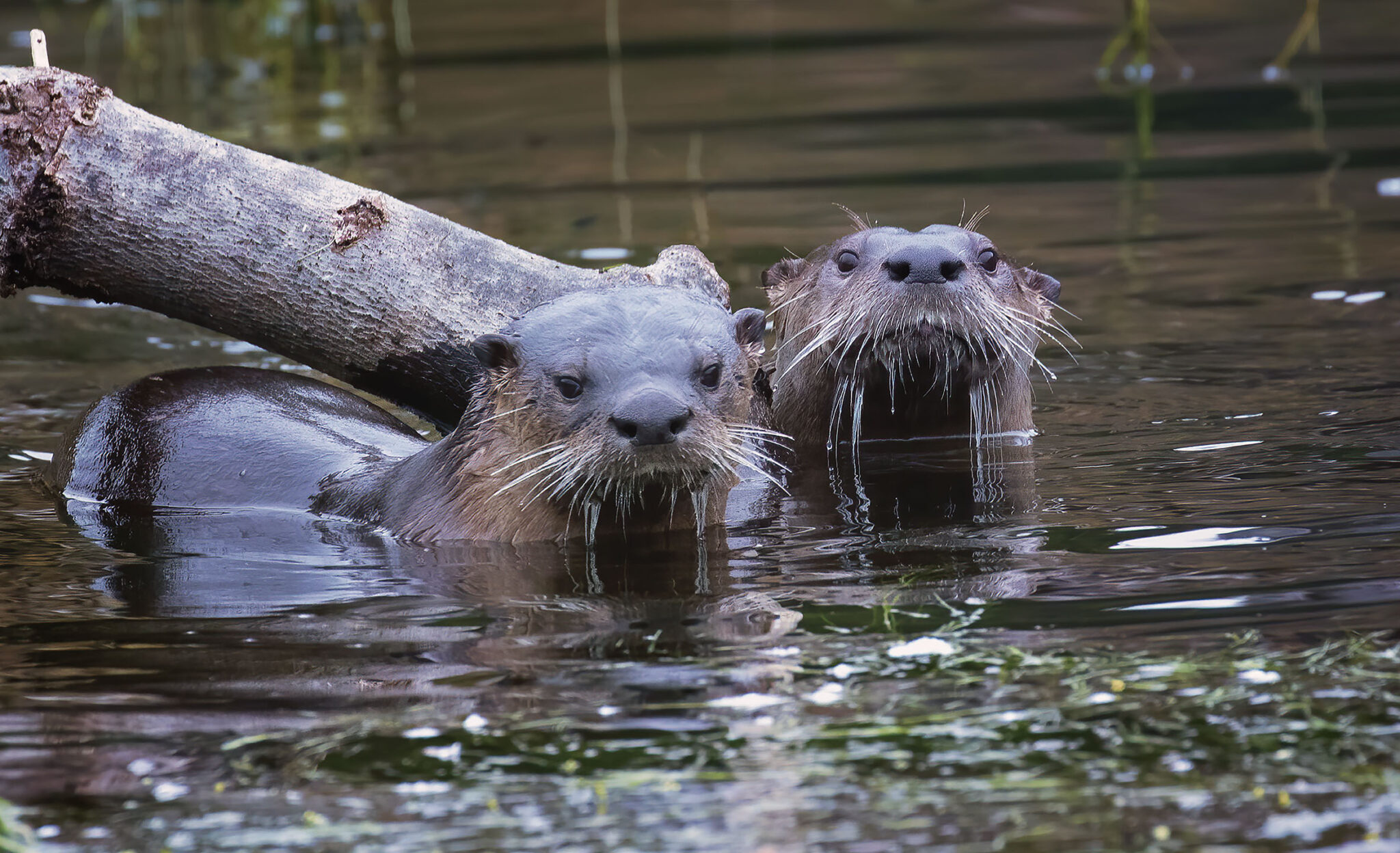
family of River Otters Mendonoma Sightings
River otters are the "playful" mammals of North America. As far as anyone can tell, they appear to simply enjoy the fun of a social outing whether it be tobogganing, somersaulting underwater, playing with a rock, shooting the rapids or an earnest game of tag. An otter slide is made by the animal sliding down a slope, forming as if it were a.

North American River Otter (Lontra Canadensis) In The Wild, Relaxes
The Otter River is a river in northwestern Kenora District in northwestern Ontario, Canada. [1] It is in the Hudson Bay drainage basin and is a right tributary of the Fawn River . The Otter River begins at Otter Lake and flows northeast to its mouth at the Fawn River. The Fawn River flows via the Severn River to Hudson Bay. References
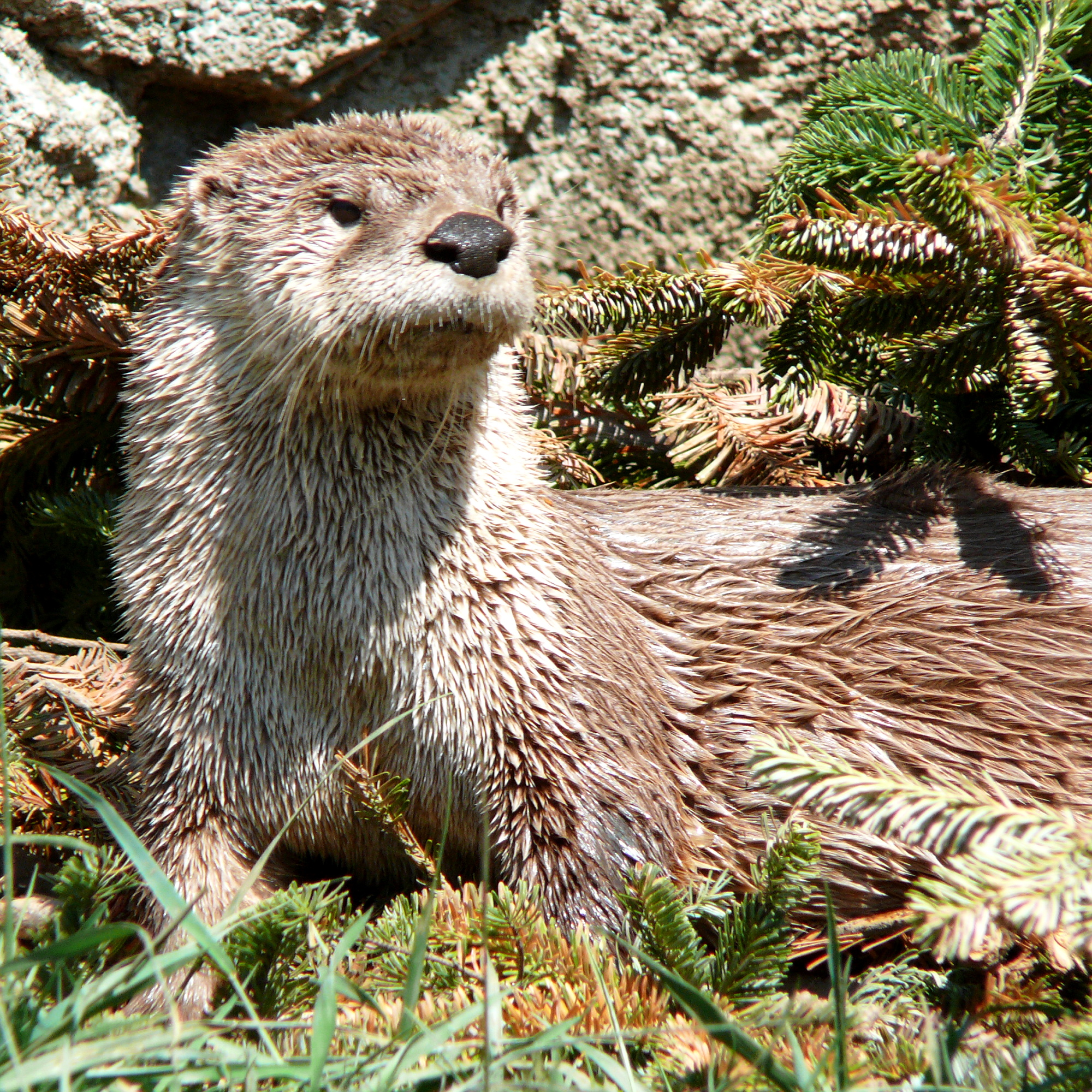
FileRiver Otter27527.jpg Wikimedia Commons
PDF | In Canada, there are two species of otters, the river otter (Lontra canadensis) and the sea otter (Enhydra lutris).. taken from four New York State counties adjacent to Lake Ontario and.
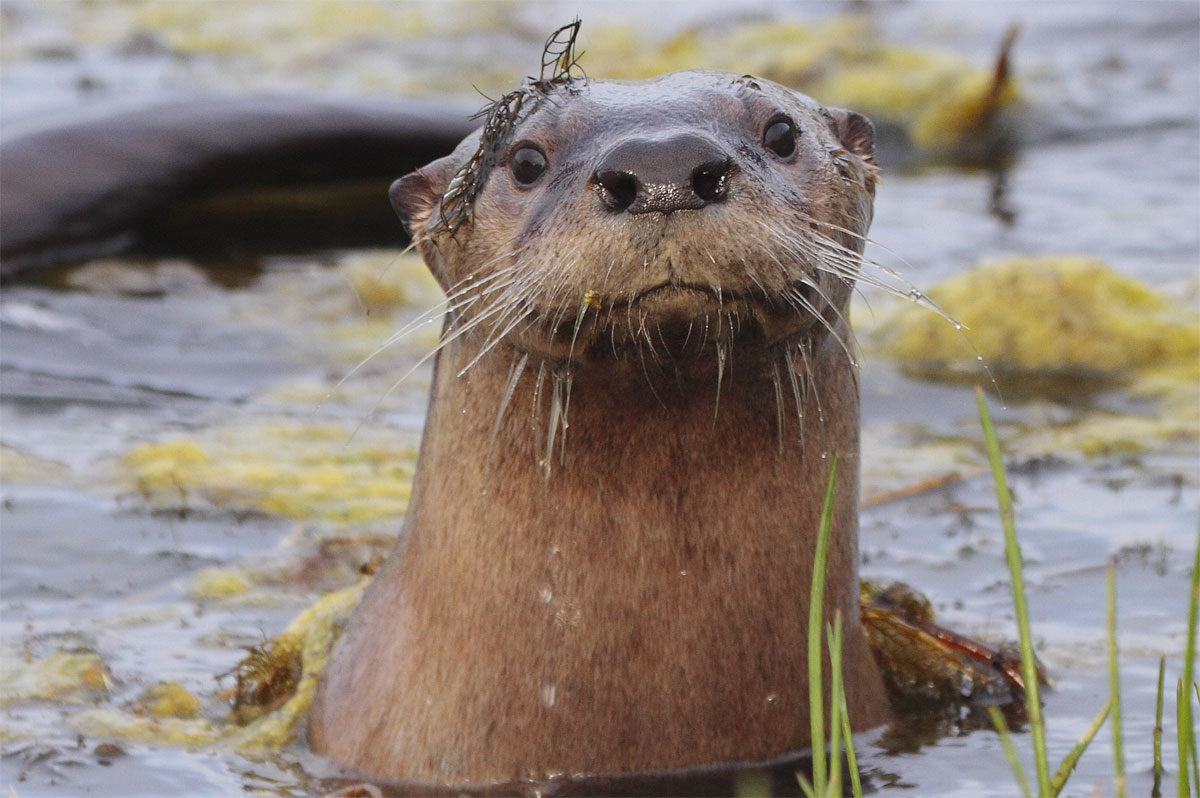
After Decades Away, River Otters Make a Triumphant Return to the Bay Area
River otter use many types of aquatic habitat and is widely distributed throughout much of Canada, with abundance directly related to prey availability and suitable denning cover. Within the aquatic food chain, river otters are opportunistic omnivores, but prefer fish when available. Otters can range considerable distances overland.

Otter The Canadian Encyclopedia
The North American river otter ( Lontra canadensis ), also known as the northern river otter or the common otter, is a semiaquatic mammal endemic to the North American continent found in and along its waterways and coasts. An adult river otter can weigh between 5.0 and 14 kg (11.0 and 31 lb).
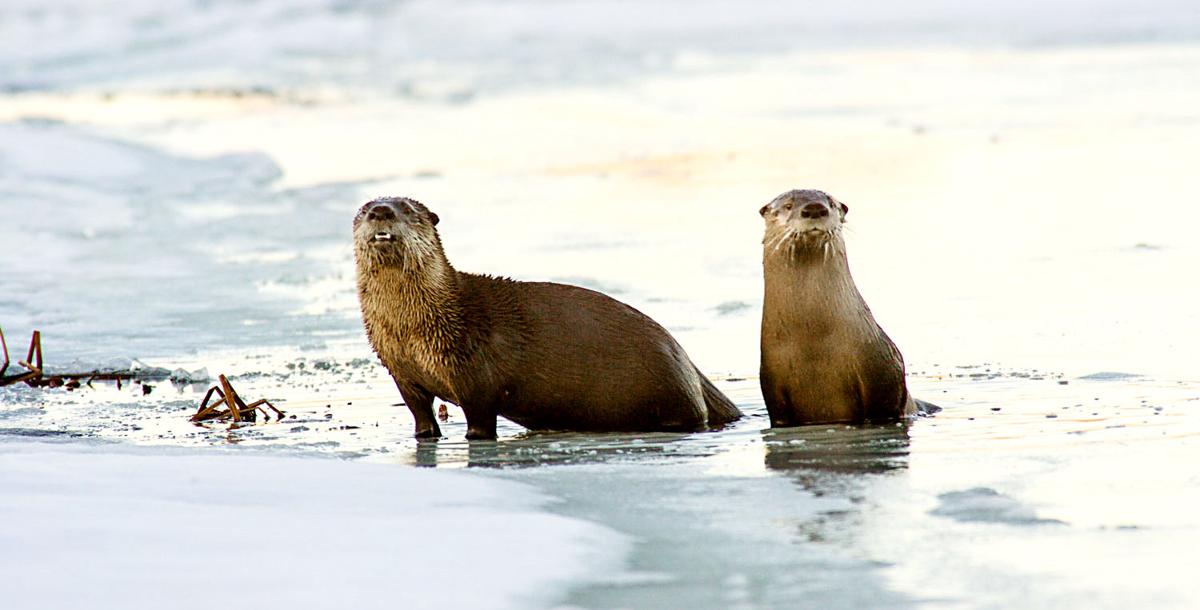
River otters are here, but you probably won’t see them
River otters can be found throughout North America. In Canada, they are found in every province and territory, but have only recently returned to Prince Edward Island after disappearing at the beginning of the 20 th century. They can live in a variety of different aquatic habitats, including rivers, lakes and large creeks.
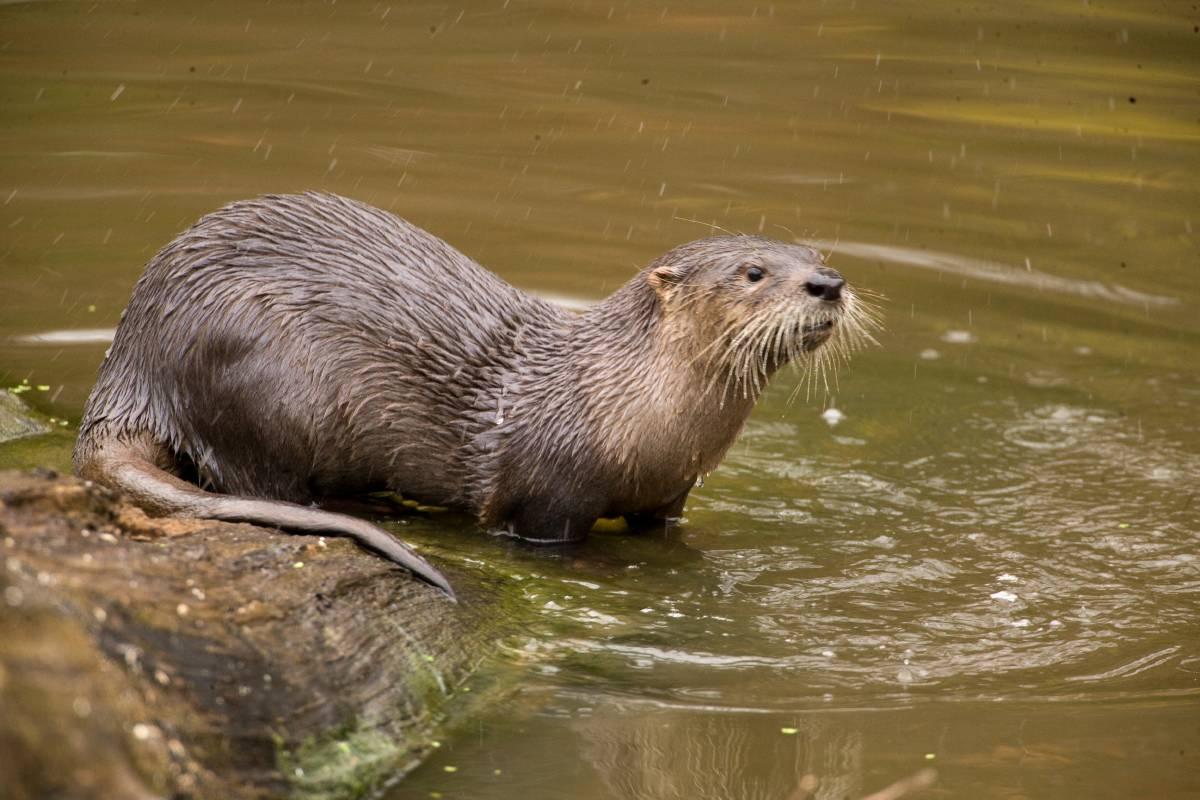
Discover Nature River Otters KBIA
Description The playful North American river otter is well adapted for semi-aquatic living. The mammals have thick, protective fur to help them keep warm while swimming in cold waters. They have short legs, webbed feet for faster swimming, and a long, narrow body and flattened head for streamlined movement in the water.

Photo of the Week River Otter Takes a Nap Kayak Dave's
The Canada otter, Lutra canadensis, is also known as the "river otter". It belongs to the Mustelidae family of musk carriers, which also includes the mink, marten, fisher, and skunk. Distribution The otter has never been very abundant in North America, but it is distributed throughout Canada and most of the United States.

North American river otter (Lontra canadensis) in wild, atop ice
North American river otters, also called Canadian otters, have long, muscular, streamlined bodies with short legs and fully webbed feet bearing non-retractable claws. Their small heads widen to long necks and shoulders, and they have flattened, well-muscled tails. These otters have brown-to-gray fur, and their undersides are a lighter, silvery.

North American River Otter (Lontra Canadensis) in the Wild, Pokes Up
This playful means of travel is usually accompanied by various sounds, ranging from low growls to high-pitched chirps. The river otter can be found in every province in Canada -except for Prince Edward Island, where they've been extirpated. They're found throughout North America and don't seem to mind rivers, lakes, swamps, and coastal.